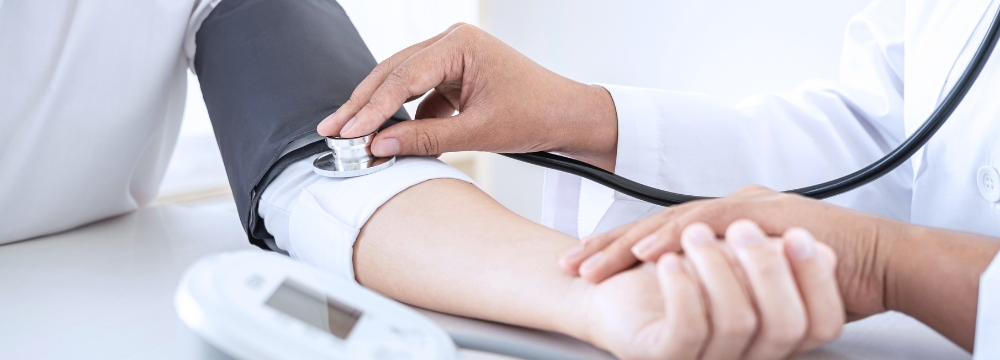Three Ways to Reduce Your Blood Pressure

Blood pressure, or hypertension, is one of the most common precursors to severe cardiovascular disease and affects millions of Americans. With high blood pressure on the rise, the general worsening of the American diet, and an increased prevalence of a sedentary lifestyle, we have found ourselves facing an excess weight and obesity epidemic. Now more than ever it is imperative to understand blood pressure, how to measure it, and what markers to look out for in keeping ourselves on the right track for optimal cardiovascular health.
You have probably been given two blood pressure numbers at each of your primary care, urgent care, or ER visits. The top number, known as a systolic reading, tells us how much pressure is put on the arterial walls during a heartbeat. The lower number or diastolic reading gives us an idea of the blood pressure against the same arteries between heartbeats when the heart is relaxed. A perfect reading is generally considered 120/80. However, most patients will vary. Several factors influence blood pressure, however, it generally revolves around how well your blood can get to the rest of your body. If you are facing increased readings, taking an appropriate step right away is key.
The following are three ways to improve your blood pressure and reduce the risk of heart disease:
First, the viscosity of your blood is composed of about 50% water. The rest is made up of red blood cells. As such, it is critically important that you maintain the appropriate viscosity of the blood thickness. The easiest and fastest way to ensure that your blood viscosity remains ideal is to stay hydrated. This means drinking around 64 ounces of water each day. That’s 8 cups. If you live in a particularly warm or cold area, if it is hot in summer or freezing in winter, you will likely need to modify that water consumption to compensate. This is also true if you start a new exercise program. As the water eventually reaches your bloodstream, it will sit in the blood, allowing for improved blood pressure.
Second, blood pressure is influenced by how much blood is required for the rest of the body. Your left ventricle supplies blood through the arteries and capillaries to every cell in your body. As you gain weight, you require added vascularization. This added vascular requirement increases your blood pressure by forcing your heart to work harder, essentially pumping more quickly. Reducing your body’s blood requirement by dropping weight is critical to blood pressure reduction. This increased vascularization is also one of the reasons why overweight and obese people typically have high blood pressure, and why it is one of the first conditions to manifest in obese patients.
Last, but certainly, not least is reducing stress. Stress has a double-whammy effect on blood pressure because it affects the sympathetic nervous system by increasing the hormone secretions of cortisol. It also promotes poor eating habits that can increase blood cholesterol and lead to increased vascularization as discussed above. Unfortunately, stress seems to be a constant in modern-day work and home life, but it does not have to be. Start by getting a good night’s sleep. Go to bed at the same time each day and try to wake up at a similar hour. This can give you a level foundation and a more measured outlook when approaching stressors in your life. In addition to sleep, exercise is crucial for stress reduction and overall health, offering various physical and emotional benefits.
As you can tell, blood pressure is a critical marker in treating and preventing heart disease. While many patients dismiss it, as cardiologists, we see high blood pressure as the gateway to significant future cardiovascular disease and morbidity. Don’t wait to change your lifestyle or get treatment. Blood pressure readings are probably the most accessible cardiovascular marker to track, with many pharmacies and big box stores offering low- or no-cost testing. If you are experiencing high blood pressure, see your cardiologist for further advice and treatment.







